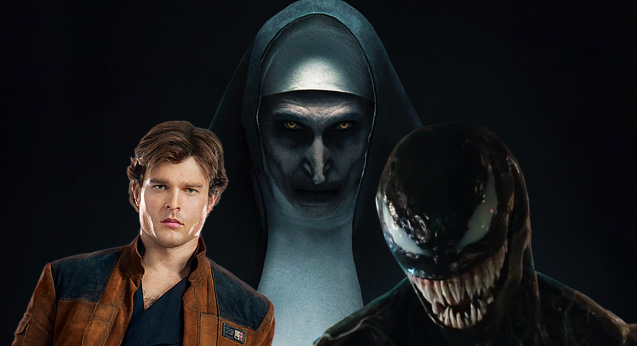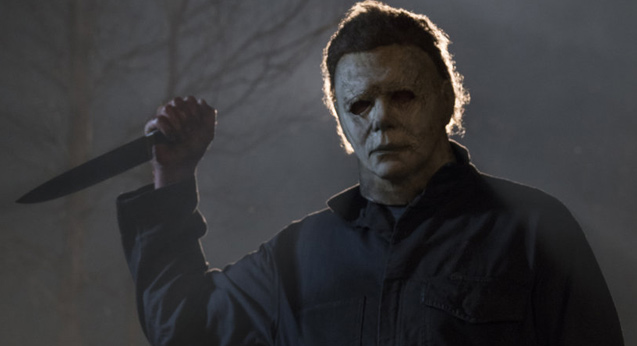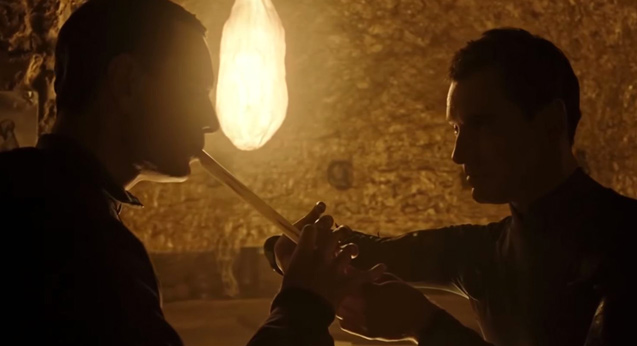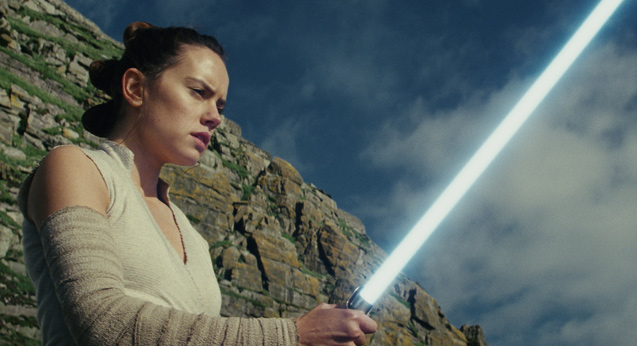Why we should embrace the rising popularity of Hollywood spin-offs

Are you tired of keeping count of the number of sequels to your favourite franchise? There’s something to be said for spin-offs, writes Liam Maguren. At least they don’t require audiences to watch a decade (or more) of previous installments.
I admired the Saw franchise for its consistent dedication to numbering their sequels. Saw, Saw 2, Saw 3, Saw 4, Saw 5, Saw 6, and Saw 7*. It was everything the plot was not: clean and simple. Then they messed that up with last year’s Jigsaw.
*It was also called Saw 3D: The Final Chapter, but stick with me.
The latest film pretty much ignored the second half of the series to do its own thing. Making matters worse, they added a ‘Jig’ before the ‘Saw’ and failed to slap an ‘8’ on afterwards. My desire for order had been shattered.
Is it really such a bad thing, though? The breaking of order, I mean. Not the film itself, which was very much a bad thing.
The Nun recently proved that spin-offs can hit it bigger than the originals. Despite being a prequel to The Conjuring sequel, it is currently the highest grossing film in the franchise worldwide. Sony’s Venom was an even bigger success, and that starred a villainous spin-off character from a comic book hero they no longer have full custody over.
Now we have a new Halloween film called Halloween, which is a direct sequel to a film also called Halloween but has nothing to do with Rob Zombie’s film which was also called Halloween. It proudly ignores all nine Halloween sequels which, given their dour reputations, fans seem to be happy with. The new film is technically less of a spin-off and more of a spin-around, but there’s a similar intent here.
Given how there’s an awful lot of Saws, Conjurings, and Halloweenses, it’s intriguing to see how their latest films don’t follow a straight-and-narrow track. As Daniel Rutledge pointed out, horror is a genre saturated with spin-offs, sequels and prequels. But there’s something to be said about audiences’ eagerness to see a big entry to a franchise that doesn’t require you to watch a decade of previous films.

Pictured: Halloween (2018)
Whether this new Halloween can crack the box office piggy remains to be seen, but they’re doing the right thing by letting as many people know that it’s not related to any previous Halloween film except for the original.
The Nun was even clearer on its status. For Conjuring fans, they recognised the character immediately from The Conjuring 2. For others who’ve never seen a Conjuring film, they just saw a standalone horror about a freaky-looking nun. It works either way, so one feels excluded.
Perhaps that’s partly why new entries into the Alien, Predator and Terminator worlds haven’t been succeeding – their status in the series isn’t immediately clear. Is Covenant a sequel to Resurrection or Prometheus? Do I have to watch Predators to get The Predator? What year and universe does Genisys take place in the Terminator timeline?
For someone who isn’t a sci-fi nerd, it’s tempting to pass on something they might not be ‘in the know’ about. Those particular films take themselves very seriously too, as do their fans, inadvertently creating a waft of exclusivity that pushes non-fans out. It’s the difference between knowing the canon and knowing you cannot.

Pictured: an… Alien movie? I think?
Star Wars is an exception. EVERYONE loves Star Wars. Disney’s trying to make that cake and spin it off too with singular subheaded ‘Star Wars Stories’ placed in between numerically labeled ‘Episodes’. That method comes off the back of Marvel’s box office-breaking Cinematic Universe, which ultimately redefined what a ‘sequel’ could be to general audiences.
You could credit this largely to 2012’s Avengers, which proved an entertaining ride for everyone – whether or not you saw all the films in the lead-up. It set the precedent that any future MCU film could be enjoyed without the need to see everything that came before. Even Infinity War, the most ambitious crossover event in history, proved enjoyable on a standalone basis.
It also became easier for the hard-out fans to shove off the odd MCU film they hated while still embracing the universe as a whole. It’s not like Iron Man 2 or Thor: The Dark World broke the back of a single epic story that’s been building for decades.
Which brings us back to Star Wars, the episodic saga that’s been building for decades. A generation grew up with Episodes 4, 5 and 6 in their hearts, so when George Lucas moistly farted the prequels, an anger brewed. These movies were bad and because they were ‘Episodes’, everyone had to accept that they were a significant part of the thing they adored.
The result? Grown men taking to the streets singing how George Lucas abused their childhood.

Pictured: Star Wars: The Last Jedi
Then, The Last Jedi happened. The film was different. The film was flawed. The film did enough to reawaken the rage-monster that laid dormant in betrayed fans. And, again, it couldn’t be ignored, because this was another chapter in a proverbial book.
This is the part where I write about the great divide that split audiences down the middle, forcing them to fight one another on the internet. That it became more than liking or disliking a film. That it was a war of ideologies, identities, and being right above everyone else.
As it turns out though, the great debate wasn’t anywhere near as heated as we were led to believe. Rather, the flames were stoked by Russian bots using the film to cause further social havoc and disharmony. And we all willingly took it as truth, because that’s how unusually serious the Star Wars saga has become.
In an alternate universe, would such a massive political power play be made if all Star Wars episodes were really just their own separate stories? I’m convinced not, and that speaks out to the perceived importance and exclusivity pierced onto such franchises.
This isn’t to say we should get rid of straightforward cinematic sagas entirely. The modern Planet of the Apes trilogy remains one of the finest and most necessary examples of the art form. But let’s start recognising spinoffs as a positive step forward for mainstream cinema. Even if Jigsaw sucked.
















